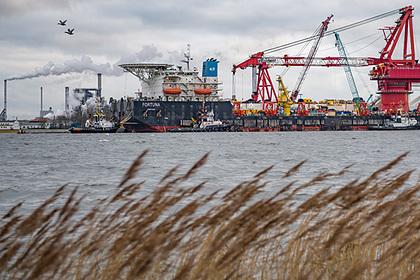
The German government has made a number of mistakes in promoting the Nord Stream 2 gas pipeline project, but its termination is fraught with serious risks. This opinion was shared by the deputy of the Bundestag from the Christian Democratic Union (CDU) Roderich Kiesewetter in an interview with Deutsche Welle.
The parliamentarian said that Berlin's main mistake was that the project was political from the very beginning. He recalled that the then German Chancellor Gerhard Schroeder held early elections and left to work for Gazprom. “It is clear that if the former German chancellor takes on such an important function, this is a political and potentially scandalous project,” said Kiesewetter.
The politician notes that another miscalculation was the perception of the gas pipeline as a purely bilateral project, despite the fact that energy issues are being resolved at the level of the entire European Union. According to him, this led to misunderstandings with other EU members. In addition, Germany made a mistake by not discussing Nord Stream 2 with Ukraine, Poland and the Baltic countries, whose interests are affected by this project.
However, Kiesewetter stressed that suspending the project would be a politically wrong move. “First, the FRG government will have to pay huge compensation. Secondly, it will be a violation of the agreement, ”he said. In addition, according to the politician, Germany will have much more influence on Russia if the construction of the gas pipeline is completed. Kiesewetter suggested that Berlin will be able to link gas supplies to political issues, for example, the resolution of the Ukrainian crisis, Russia's actions in Syria and Libya, and so on.
The Nord Stream 2 gas pipeline from Russia to Germany along the bottom of the Baltic Sea was supposed to be commissioned at the end of 2019. However, its completion was hampered, in particular, by the threat of sanctions from the United States, due to which European companies began to withdraw from the project.
On January 19, 2021, Washington for the first time realized the threat and imposed restrictions on the Russian barge Fortuna, which was going to be used to complete construction. After that, Gazprom admitted for the first time that construction could be postponed indefinitely, and under exceptional circumstances even forever.

